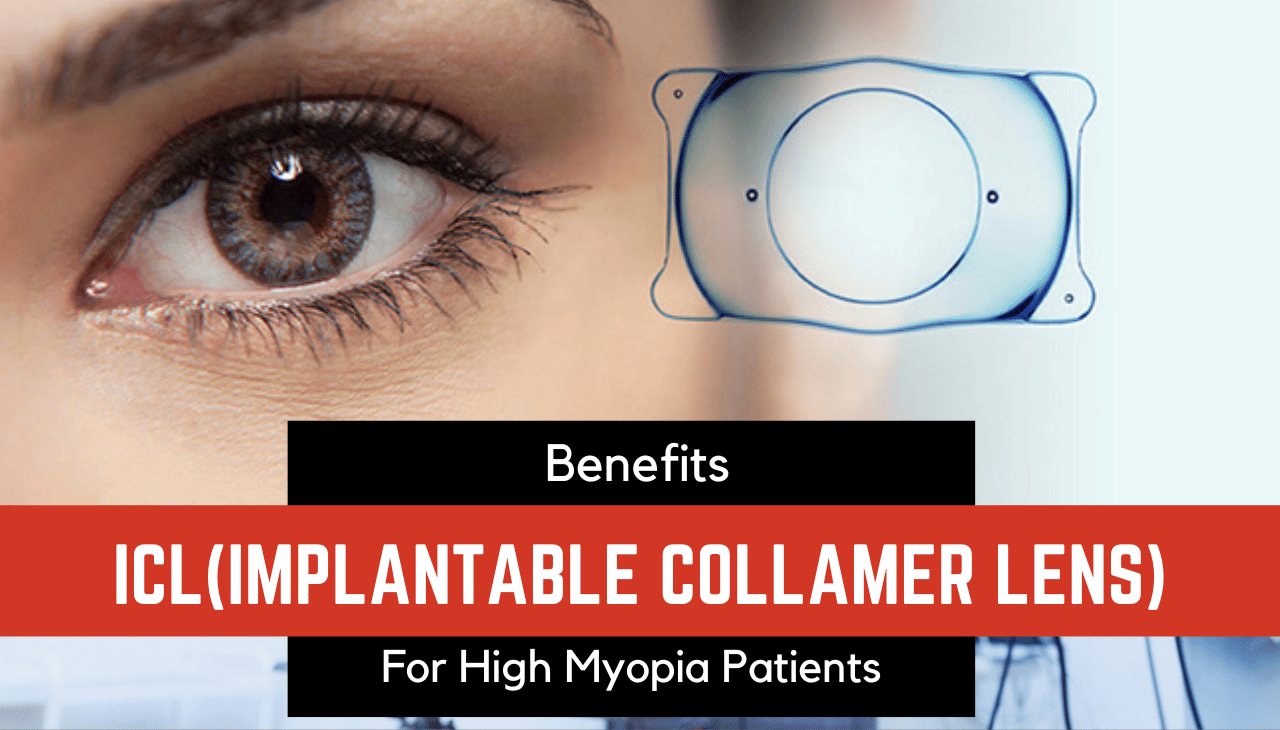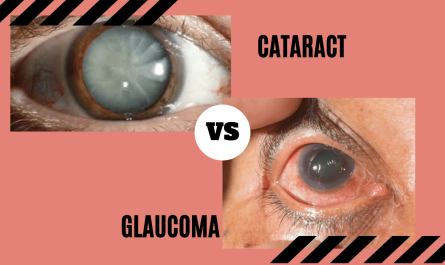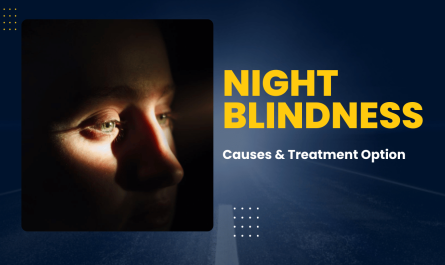Introduction
For individuals with high myopia, or severe nearsightedness, wearing thick glasses or contact lenses can be frustrating. Traditional vision correction methods may not always provide the desired results, leading many to seek long-term solutions. Implantable Collamer Lens (ICL) surgery has emerged as one of the most effective treatments for high myopia, offering clear vision without dependence on glasses or contact lenses. This blog will cover the challenges of high myopia, explain what ICL surgery is, highlight its benefits, and provide insights into the procedure.
High Myopia: Challenges and Limitations
High myopia is a severe form of nearsightedness where distant objects appear extremely blurred, while close objects remain clear. It is usually classified as a prescription of -6.00 diopters or higher.
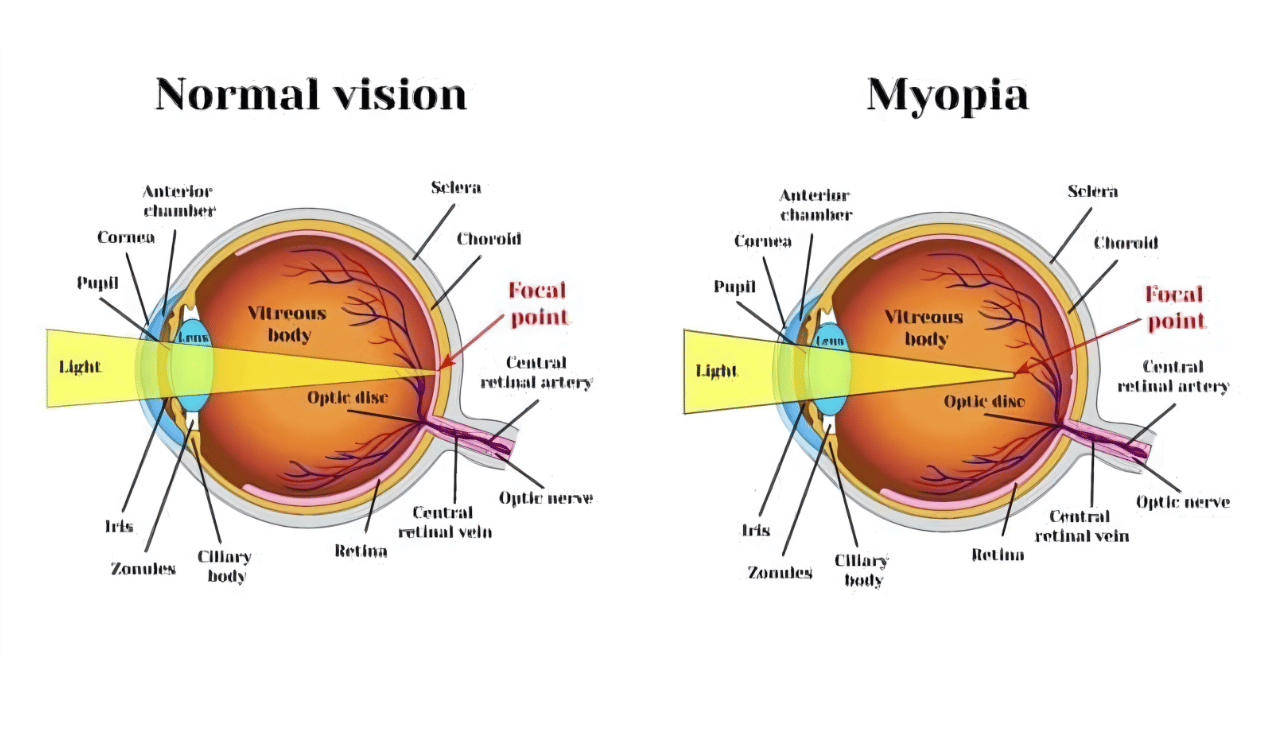
Causes of High Myopia:
- Genetics: Often runs in families.
- Prolonged Near Work: Excessive screen time and reading.
- Environmental Factors: Poor lighting and limited outdoor exposure.
Common Challenges Faced by High Myopia Patients:
- Dependence on thick glasses or contact lenses.
- Increased risk of eye diseases such as cataracts, glaucoma, and retinal detachment.
- Frequent changes in prescription leading to higher costs.
- Limited eligibility for LASIK due to thin corneas.
What Is ICL Surgery?
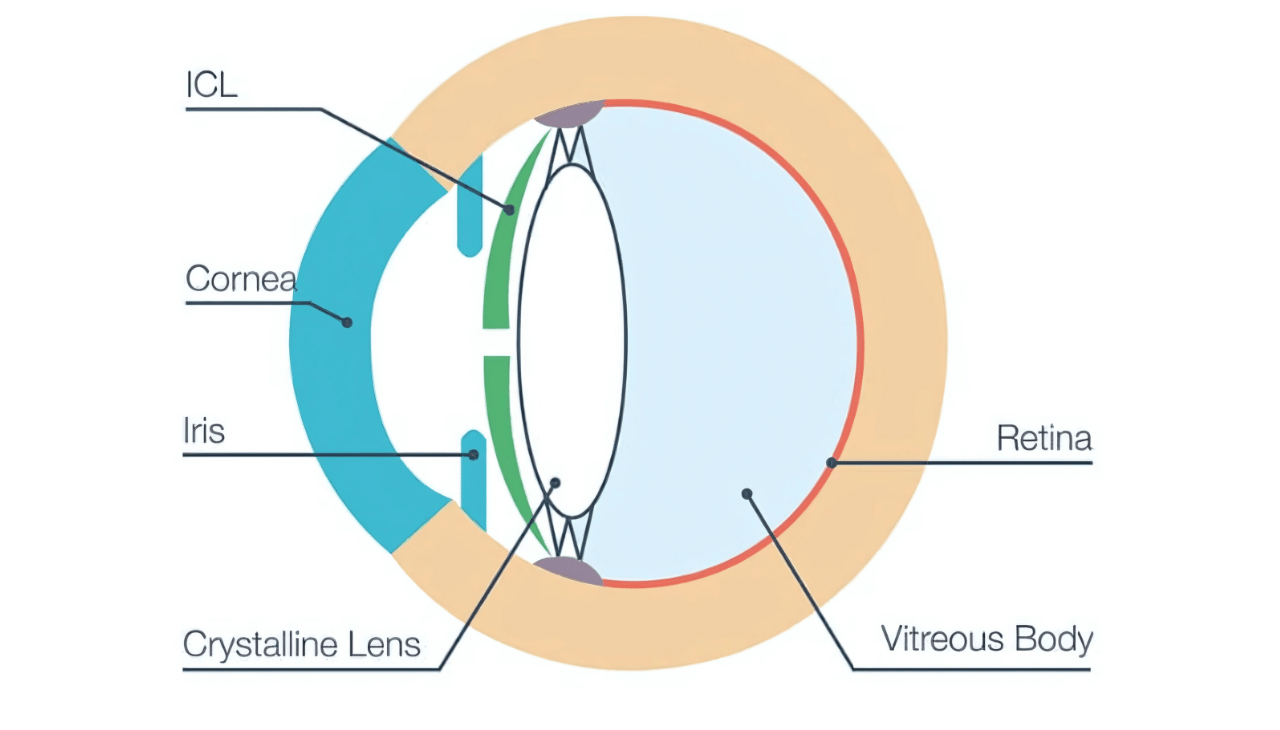
Implantable Collamer Lens (ICL) surgery is an advanced vision correction procedure where a biocompatible lens is placed inside the eye, between the natural lens and the iris. Unlike LASIK, which reshapes the cornea, ICL works by adding a corrective lens inside the eye.
Key Features of ICL:
- The lens is made of a biocompatible material (Collamer) that integrates well with the eye.
- It is a reversible procedure, meaning the lens can be removed if needed.
- Provides excellent night vision and UV protection.
- Suitable for people with thin corneas who are not eligible for LASIK.
The Benefits of ICL for High Myopia Patients
ICL surgery offers numerous advantages, especially for individuals struggling with high myopia. Here’s why it stands out:
- Superior Vision Quality: Provides sharper and clearer vision than glasses or contact lenses.
- No Corneal Alteration: Unlike LASIK, ICL does not remove corneal tissue, making it a safer option for individuals with thin corneas.
- Reversible and Upgradeable: The lens can be removed or replaced if needed.
- Quick Recovery Time: Most patients resume normal activities within a few days.
- Long-Term Solution: Provides lasting vision correction without the hassle of frequent prescription changes.
The ICL Procedure: Step-by-Step Guide
Pre-Surgery Preparation:
- Comprehensive Eye Examination: To determine eligibility.
- Measurement of Eye Parameters: Ensuring the right lens size and fit.
- Discontinuation of Contact Lenses: A few days before surgery.
The Surgery:
- Anesthesia: Local anesthesia is used for a painless experience.
- Lens Insertion: A small incision is made, and the ICL is gently placed behind the iris.
- Adjustment and Final Check: The surgeon ensures proper positioning.
Post-Surgery Care:
- Avoid Rubbing the Eyes: To prevent dislodging the lens.
- Use Prescribed Eye Drops: To prevent infections and promote healing.
- Regular Follow-ups: To monitor progress and ensure optimal results.
Real-Life Success Stories
Many patients who undergo ICL surgery experience life-changing improvements. Here are a few inspiring stories:
Many patients who undergo ICL surgery experience life-changing improvements. Here are a few inspiring stories:
- Mr. Rajesh’s Journey to Crystal-Clear Vision with ICL Surgery!
Meet Mr. Rajesh from Karjat, whose life was transformed by the revolutionary Implantable Collamer Lens (ICL) surgery performed by Dr. Tanvi Haldipurkar, our expert Cataract & Refractive Surgery Specialist. Before the procedure, Rajesh struggled with extreme nearsightedness, making daily activities challenging. Thanks to ICL surgery, he now enjoys perfect vision without the burden of glasses or contact lenses, significantly improving his quality of life.
- A 28-year-old Software Engineer: Struggled with -10.00 diopters and thick glasses. After ICL, he enjoys clear vision without any aids.
- A 35-year-old Teacher: Was ineligible for LASIK due to thin corneas but achieved perfect vision with ICL.
Consultation at Laxmi Eye Hospital
Laxmi Eye Hospital is one of the leading eye care centers in Mumbai, known for its excellence for over 30 years. With experienced eye doctors and a reputation for transparency in treatment, Laxmi Eye Hospital provides the best-in-class diagnostic and advanced eye care treatment across multiple locations, including Panvel, Kharghar, Kamothe, and Dombivli. The hospital specializes in various advanced eye care services, including Specs Removal / LASIK (Bladeless LASIK, ICL, IPCL, Contoura Vision LASIK), Cataract Treatment, Glaucoma Management, Diabetic Eye Care, Cornea Clinic (Common Corneal Disease, Keratoconus Management, Eye Donation), Retina Treatment, and Pediatric Ophthalmology.
For appointments, visit Laxmi Eye Hospital or call the nearest clinic.
FAQs
1. Is ICL surgery safe?
Yes, ICL is FDA-approved and has a high success rate with minimal complications.
2. How long does the procedure take?
The surgery typically takes about 20-30 minutes.
3. Is the ICL visible to others?
No, the lens is placed behind the iris, making it invisible.
4. Can ICL correct astigmatism?
Yes, toric ICLs are available for astigmatism correction.
5. How soon can I return to normal activities?
Most patients resume normal activities within 2-3 days.
6. Is ICL a permanent solution?
Yes, but it is also reversible if needed.
7. What is the cost of ICL surgery?
Costs vary depending on the hospital and lens type. A consultation can provide a precise estimate.
8. Will I still need glasses after ICL? Most patients achieve near-perfect vision, reducing or eliminating the need for glasses.
Conclusion
ICL surgery is a revolutionary solution for high myopia patients seeking clear and long-term vision correction. With benefits like high-quality vision, reversibility, and minimal recovery time, it is an excellent alternative to traditional methods. If you are struggling with severe nearsightedness, consulting an expert at Laxmi Eye Hospital can help you determine if ICL is right for you. Take the first step towards a glasses-free life today!

